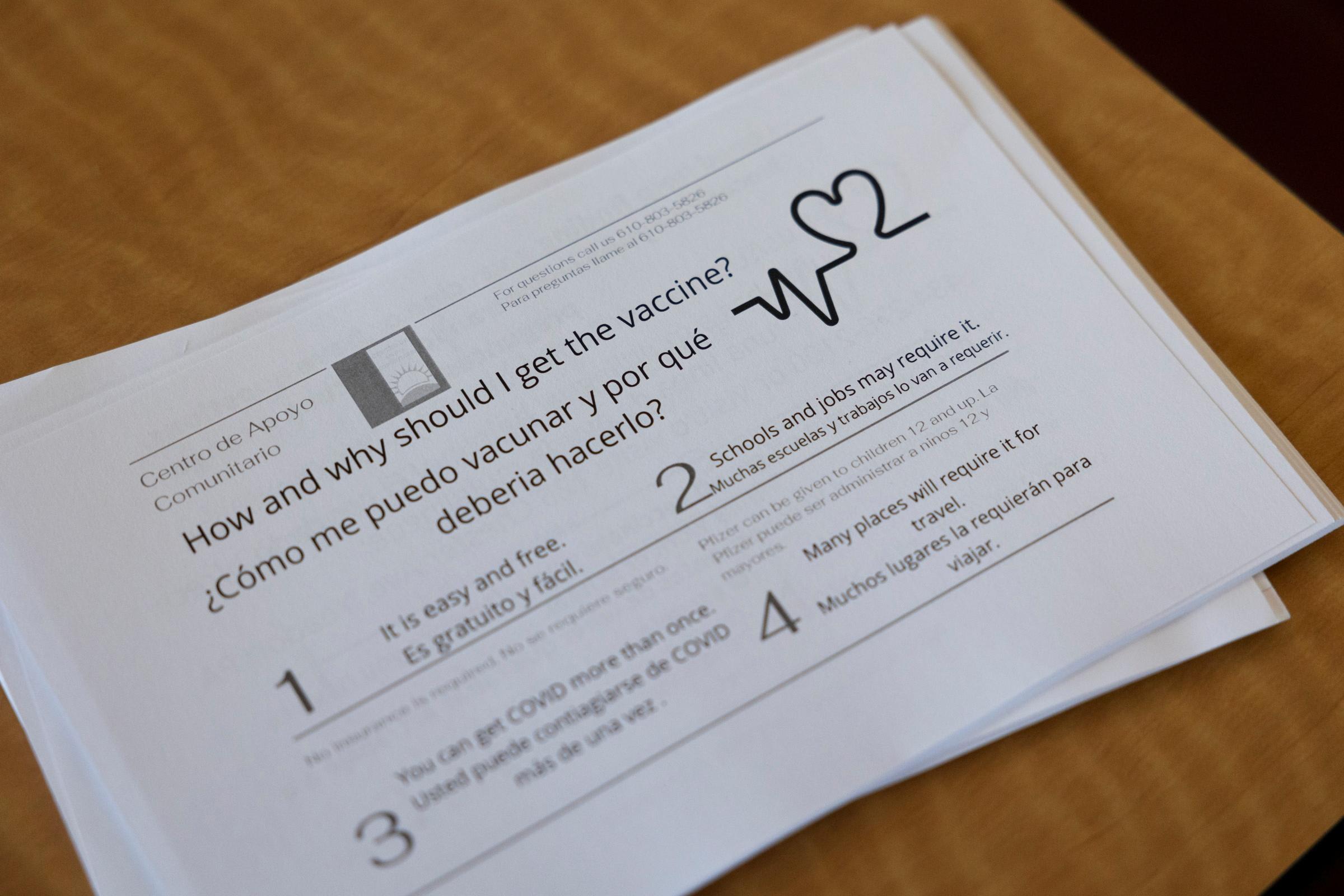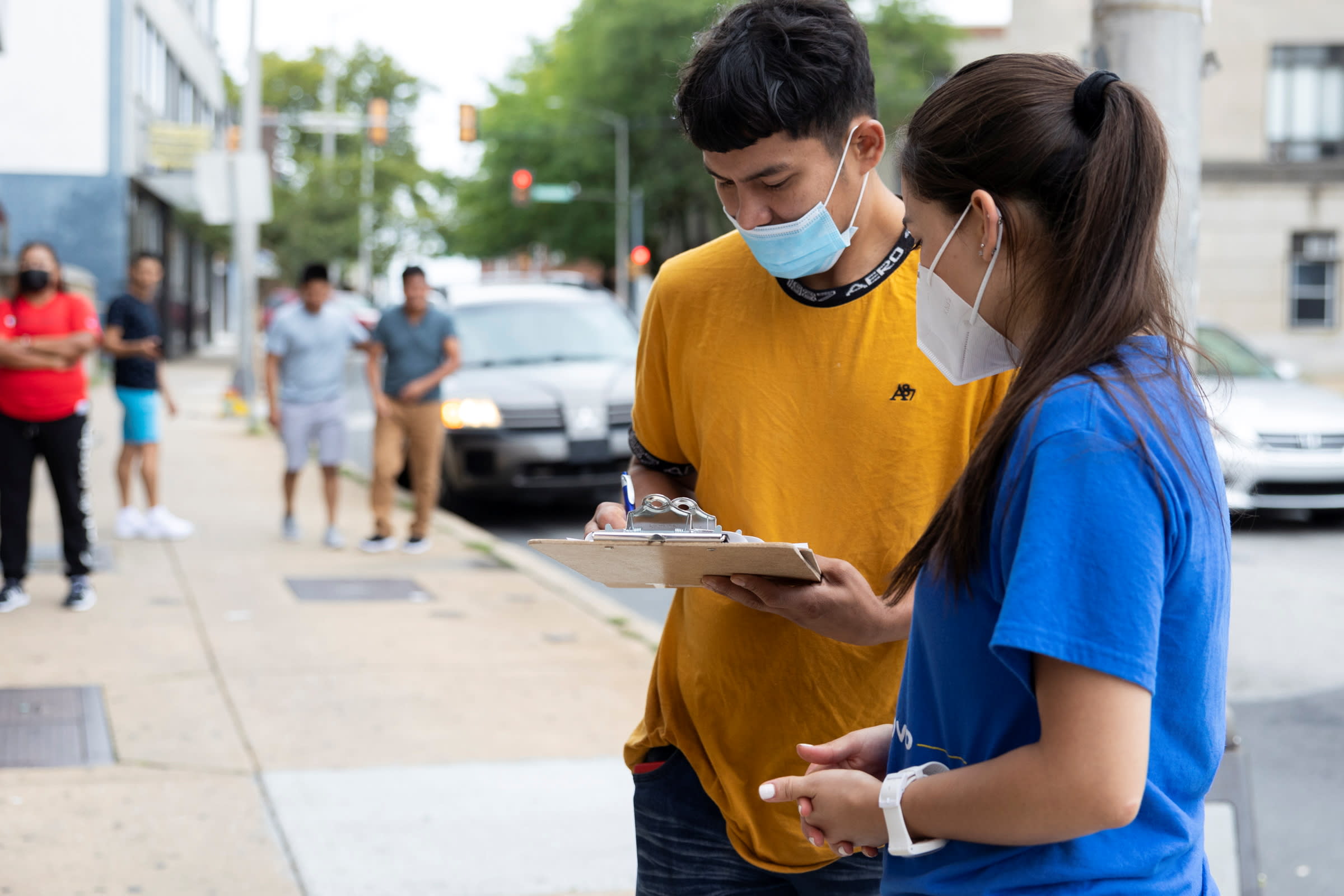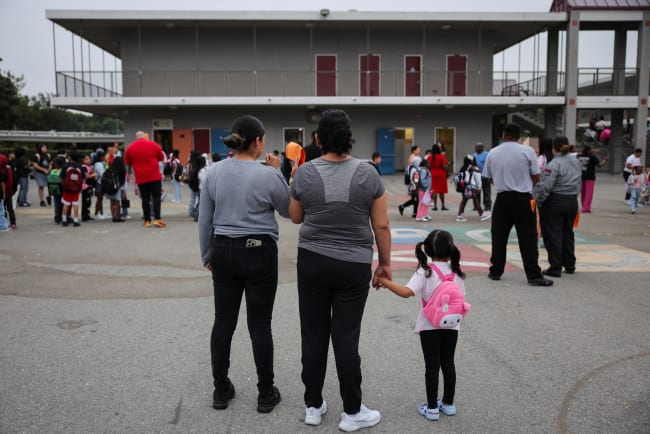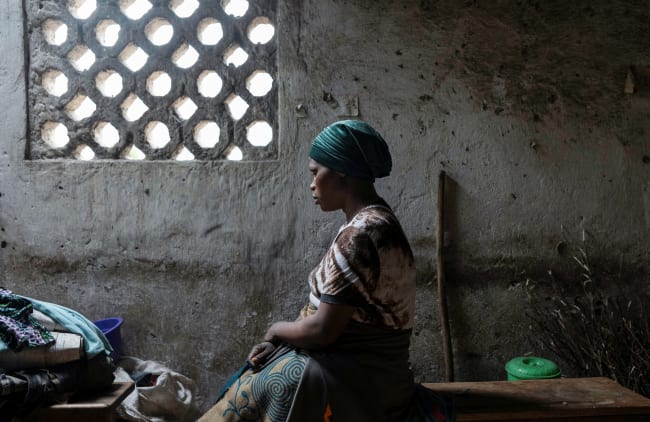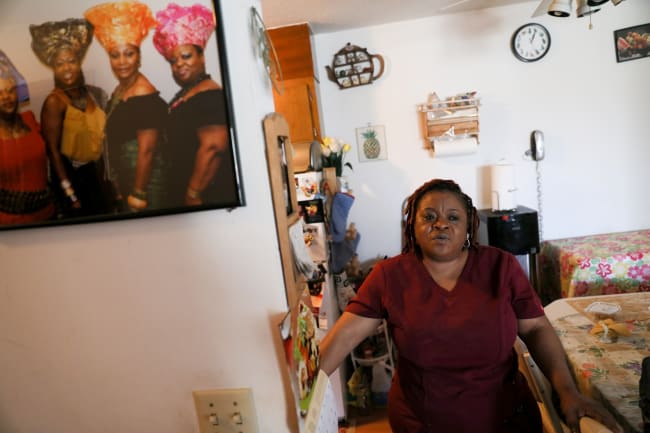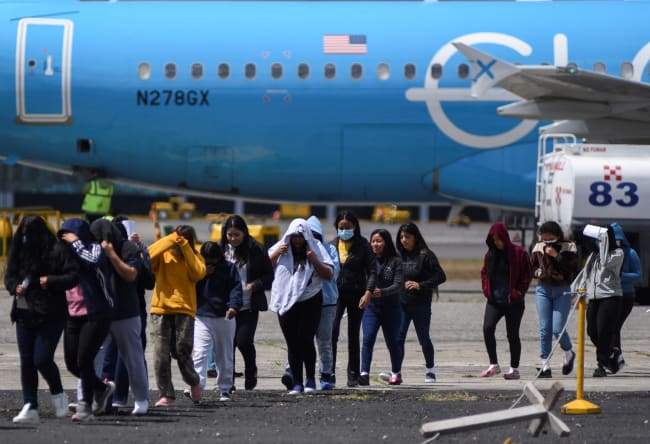During the COVID-19 pandemic, journalist Tibisay Zea realized that the Hispanic community in Boston and greater New England needed to be more informed on health issues. Zea, originally from Venezuela, had always wanted to educate Latinos living in Boston on health-related topics, primarily because data in Spanish is scarce.
After securing a grant from the International Center for Journalists and partnering with El Planeta, one of Boston's Spanish-language newspapers, and GBH, an English-language radio platform in the area, Zea and a group of producers launched the first season of the Salud (Health) podcast in 2022. The eight-episode series addresses issues including COVID-19, diabetes, human longevity, Alzheimer's disease, and other high-risk diseases prevalent in the Hispanic community. The podcast's first season had approximately 50,000 downloads and aired on Saturdays at 9:00 a.m., in Spanish, on GBH News. The third season, scheduled to launch later this year, will address new topics including cardiac diseases, cancer, asthma, and workplace accidents that disproportionately harm Latino people.
Frinny Polanco, faculty assistant director at the Office for Diversity Inclusion and Community Partnership at Harvard Medical School, has participated in the podcast since its first season. She has helped Salud find experts, collaborators, and assistance with researching the medical conditions affecting the Latino community. "This podcast is unique. Based on research we've done, it's one of the only ones, if not the only one, that talks about health issues in Spanish in the United States," said Polanco.
That sentiment was echoed by Zea, who noted that the Spanish-speaking media is "generally tiny, with few resources; and there's no effort to do fact-checking, so misinformation is a common mistake."
Based on research we've done, it's one of the only ones, if not the only one, that talks about health issues in Spanish in the United States
Frinny Polanco
As indicated in reports from Pew Research Center, nearly 1 in 5 people in the United States are Latino, approximately 20% of the country's population. The U.S. Hispanic population reached approximately 64 million in 2022, up from around 51 million in 2010. Data shows that from 2010 to 2022, Hispanics accounted for 53% of the increase in population, a more significant share than any other racial-ethnic group.
Approximately 850,000 Latinos live in Massachusetts, making up 12% of the state's population. The largest Latino groups in Boston are Puerto Rican (28%), Dominican (24%), Salvadoran (11%), Colombian (6%), and Mexican (6%). Latinos seek radio representation that reflects their multifaceted identities, including ethnicity, gender, and class, and showing up in the right context matters.
"We came up with the idea of not just interviewing health experts, and there are very good ones in Boston, but also incorporating the voices of Latinos, real people who have suffered from health problems and who can tell their stories. Perhaps the audience would identify more when listening to them," shared Zea.
Diego Ortíz, originally from Colombia, appeared in the podcast's second season to address obesity, which can lead to diabetes. Obesity disproportionately affects Latinos in the United States due to various factors, including genetic predisposition, diet, and socioeconomic disparities. "I'm 48 years old now, but when I became obese, I was 45. I almost died because of how overweight I was and the health repercussions I was having because of it. So, doctors gave me a request that I had to change my habits and lifestyle, or I would be on medication for life," said Ortíz.
He said that after a romantic breakup he gained excessive weight. But by changing his lifestyle, he was able to shed pounds and gain confidence. He later shared his story on social media. "In this process, I gained many followers because they identified with the progress they were reading and seeing," said Ortíz. "I have worked very hard to overcome obesity, so I was happy to share my story to inspire others," he added.
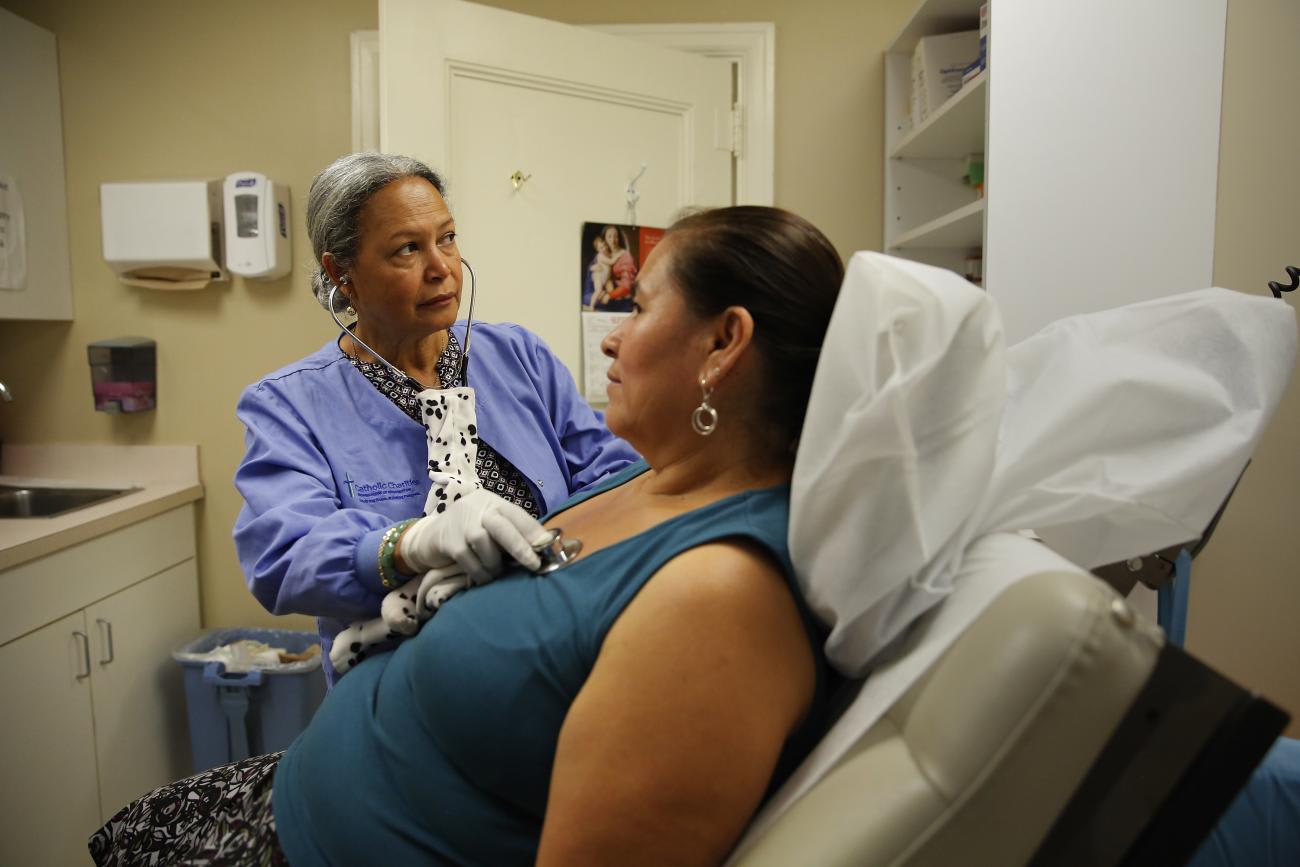
Polanco emphasizes that it's essential for audiences to receive accurate information. "When looking for experts, I usually look for one that speaks Spanish, even though there are few Latino doctors in the United States. Spanish-speakers connect faster with other people who speak their language. But if I can't find one, I use an English speaker and later use voiceover," said Polanco.
According to a recent study by the University of California, Los Angeles, only 6% of U.S. doctors identified as Hispanic. Additionally, around a third of Hispanic adults said they prefer to visit a Spanish-speaking doctor because of cultural and language barriers, according to Pew Research Center statistics.
Polanco said that she is proud of the podcast. "It has opened an outlet for Latinos, especially in Massachusetts, to understand a bit more about their health conditions and encouraged them to visit the doctor," she explained.
She said that among the podcast's most memorable episodes was a story that focused on aging. The featured individual "won a Grammy at 95 and shared that she decided to do what she always wanted to do, which was sing at an older age. And to me, that was truly inspiring because many think that if you're over 40, you've missed your boat, and that's not true."
Claudia Ginestra, Salud's producer, said she has been thrilled to see the podcast grow. Her desire to join the team emerged after discovering that most medical research is published only in English. "There's a language of discrimination because everything is in English, so Spanish speakers have less access to this content."
There's a language of discrimination because everything is in English, so Spanish speakers have less access to this content
Claudia Ginestra, producer, Salud
The three creators, Zea, Polaco, and Ginestra, agree that the podcast's success is attributable to its combination of experts with the voices of testimonials or actual characters. "We want people to connect with the story. Good storytelling is the best way to reach people," said Ginestra.
One of her favorite episodes, she said, was about mental health, which was also one of the most popular. "That episode was tough because, first of all, it's a topic that seems to be still taboo, and especially in Latin communities, it seems that it's not spoken [about] as much as it should be. Immigrants don't know the language and encounter so many difficulties that make them suffer from anxiety and depression."
For the third season, the team wants to give the emotional aspect of the podcast more weight. Although the podcast will always focus on disseminating statistics and experts' opinions, the testimonials provide an emotional angle, which captures many in the Hispanic community.
"The vast majority of our Latino audience have more than one job. Sometimes, even three jobs simultaneously, unfortunately, due to their socioeconomic circumstances in the United States. . . . Many of these immigrants don't have access to health insurance and don't go to the doctor because of language barriers. That is why we want to continue informing them about health issues, dispelling misinformation, and connecting them with people in the community who are going through the same situations," Zea explained.
